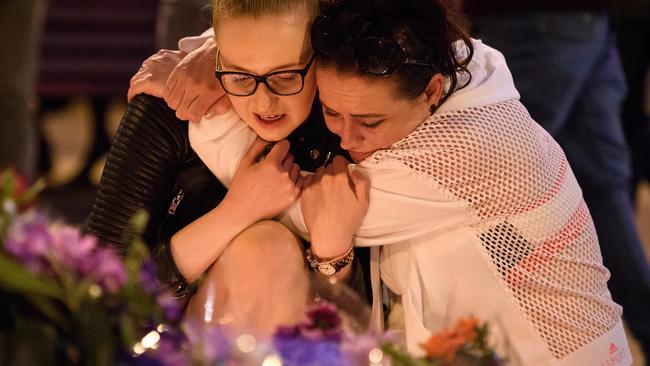Manchester remains in shock that the Ariana Grande suicide bomber was raised with them
ANALYSIS: Manchester remains in shock after a local-born boy was brainwashed by Islamic extremists to slaughtered innocents at a pop concert.
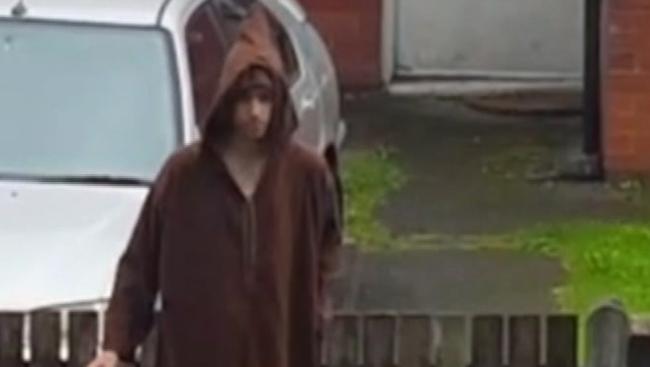
World
Don't miss out on the headlines from World. Followed categories will be added to My News.
- Chilling pics of terrorist’s nail bomb
- Manchester lauds homeless heroes
- Clue that led police to concert bomber
- Manchester: How the attack unfolded
FOR the most part, Manchester’s Muslims and non-Muslims get along just fine. Disagreements are reserved for the city’s true religion — football — and whether to back Manchester United or Manchester City. Either is acceptable, so long as it’s not Liverpool, 30 minutes’ drive away.
But Monday night’s (7:30am Tuesday AEST) suicide bombing by a Manchester-born son of Libyan refugee has shocked this gritty northern English city — the second biggest outside London — to its core, and brought heavy scrutiny on the large Libyan community which is established in the suburbs to the city’s south. As estimated 5000 of Britain’s 30,000 Libyans live here.
Salman Abedi was born and raised a Mancunian after his parents fled Libya and were granted refugee status 25 years ago in the UK. He repaid the country that offered his parents sanctuary, and the city which raised him, by detonating a massive nail bomb in a crowd of mainly young people departing an Ariana Grande concert.
MORE: THE SUICIDE BOMBER’S VICTIMS
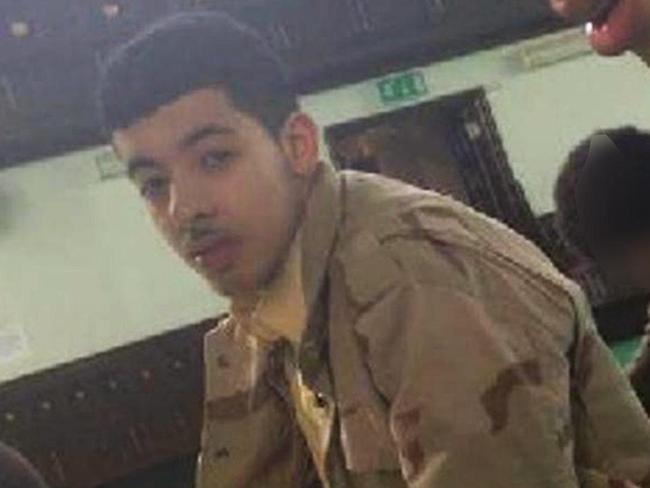
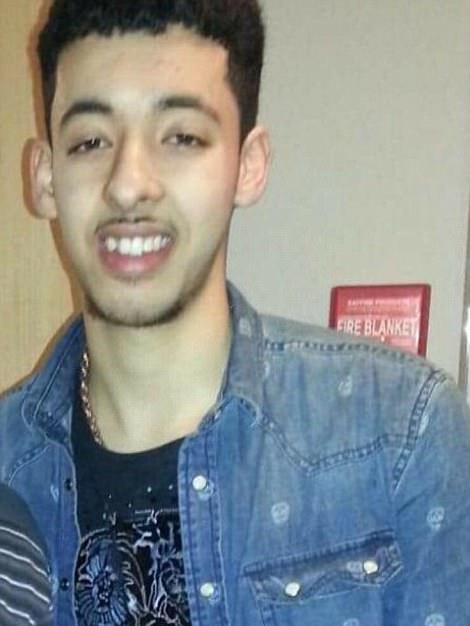
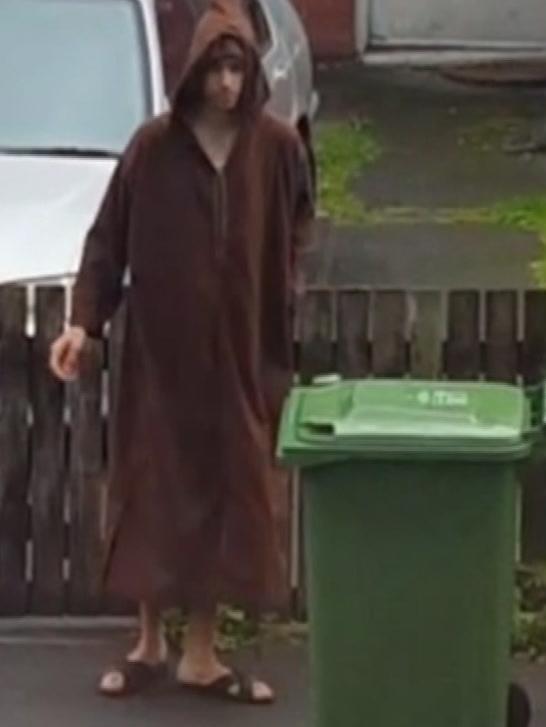
Twenty two people — a little girl aged just eight, seven teenagers, a married couple, an off-duty policewoman and two mums who went to collect their daughters among them — were killed. Another 119 were injured.
SALMAN ABEDI’S FINAL PHONE CALL
THE FAMILY OF THE MANCHESTER BOMBER
Investigators are now scouring every aspect of Abedi’s life, from the home he lived in with his parents in Elsmore Rd, Fallowfield, to his friends, associates and social media connections.
And that scrutiny has uncovered a disturbing number of Islamist extremists operating in the suburbs of south Manchester.
While Manchester hasn’t had the same problem with extremism as Birmingham, two hours’ drive down the road, an alarming number of terrorists are on authorities’ radar, mostly living within a few kilometres of each in the southern suburbs of Whalley Range, Fallowfield and Moss Side.
Of particular interest to police is fellow Libyan-born terrorist Abdalraouf Abdallah.
The 23-year-old Abdallah is serving a 5.5 year jail term for recruiting other Mancunians to join Islamic State.
Like Abedi, he was born in the UK to Libyan parents who fled their home country after rising up against the Gaddafi regime.
He is known to have links to extremists in Belgium, including, potentially, Mohamed Abrini, the so-called Man in the Hat who is alleged to have planned the Brussels and Paris terror attacks.
Chillingly, Abrini visited Manchester in 2015, before those two attacks, and took photographs of the Old Trafford football stadium.
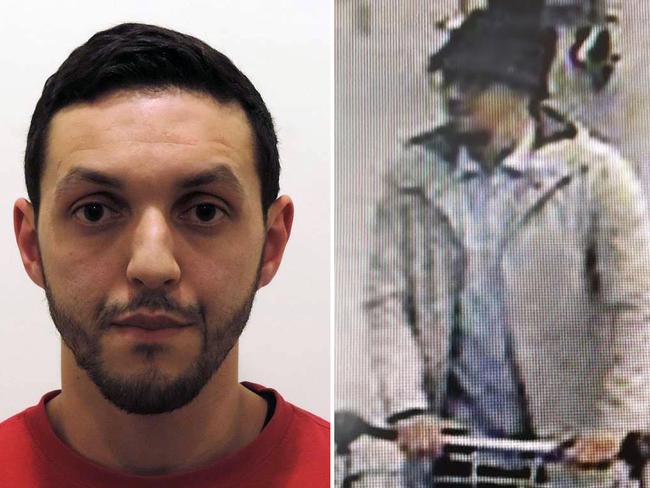
Abdallah also fundraised to send others to fight for the terrorists, including his brother Mohammed, Muslim convert and war veteran Stephen Gray, and another local man, Raymond Matimba.
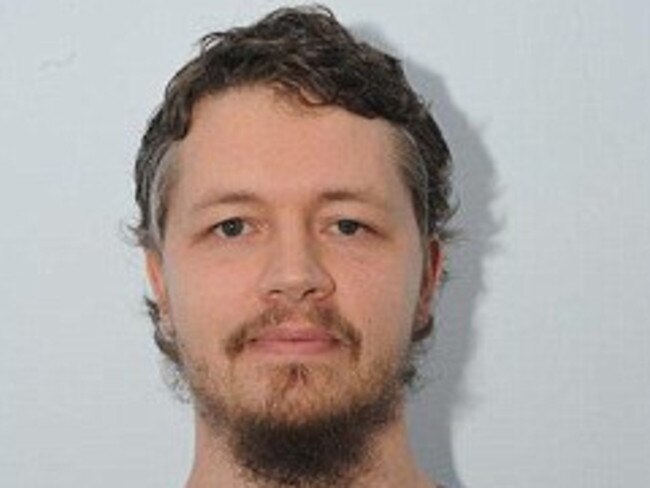
Abedi grew up just down the road from the Whalley Range High School, where 16-year-old straight-A students and aspiring doctors, Somalian-born twin sisters Zahra and Salma Halane, ran away to Syria to become jihadi brides in 2014.
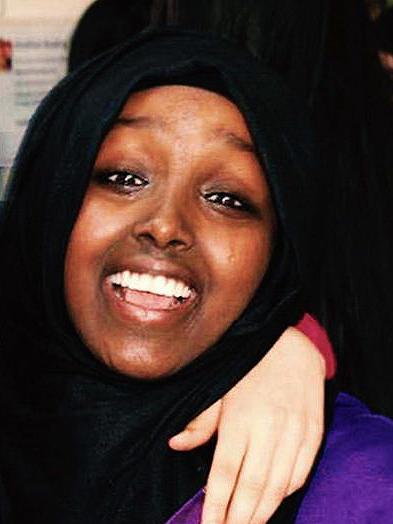
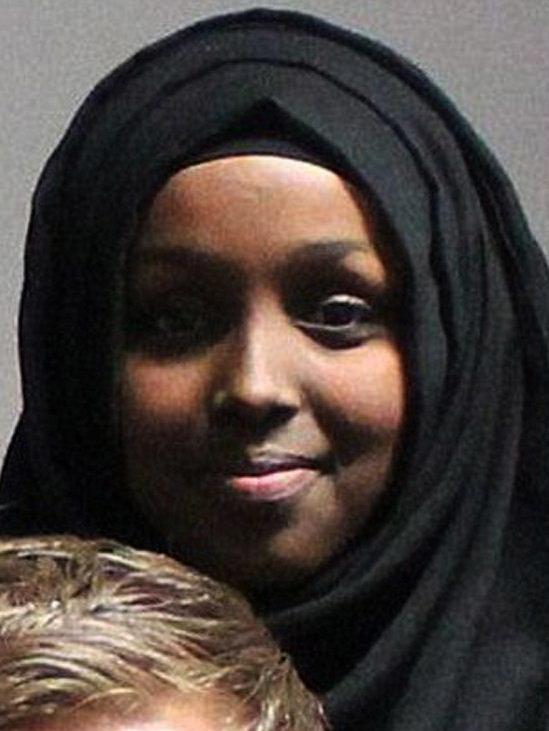
Abedi was thought to be friends with Raphael Hostey, the notorious and now-dead IS recruiter who grew up in Moss Side, close to the Abedi home in Fallowfield.
A local schoolteacher who lived close to the Abedis, Jamshed Javeed, was jailed for attempting to become a member of Islamic State.
And Mohammad Azzam Javeed, 19, snuck off to fight in Syria, where he was killed.
The British media estimates 16 jihadists who were convicted of offences, fought in Syria, or died fighting for Islamic State, come from this area.
While all these men are Muslim, they are not all from Libya, a borderline failed state in northern Africa since the US-backed removal of its dictator, Muammar Gaddafi, in 2011.
And they make up only a tiny number of the large and mostly moderate Muslim community which has settled in Manchester, a city of 500,000 people about three hours north of London, which grows to 2.5 million when the Greater Manchester region is factored in.
Tahir Abbas, a senior research fellow at the London-based Royal United Services Institute for Defence and Security Studies, said this attack had affected people deeply because of the “brutal reality of children and young people killed at the hands of what was also a very young man.’’
“Reports are emerging to suggest that there have been instances of radicalisation among the Libyan community in Manchester, although this is not a community that raised any interest among security services in the past,’’ Professor Abbas said.
He said Manchester had the third highest concentration of British Muslims after London and Birmingham.
“As these other cities also demonstrate, these concentrations tend to be diverse, but also in places monocultural, an accident of housing policy and labour market inequality.’’
In March 2017, respected think-tank the Henry Jackson Society published an in-depth report and “map’’ of UK terror hot spots, concluding that of 269 terrorists identified, 117 came from London, with its vast population of almost nine million people.
Birmingham, with its population of just 1 million, produced the second-highest number of 39, while Manchester came in third with 12 terrorists convicted — third by a large margin, to be fair, but third nonetheless.
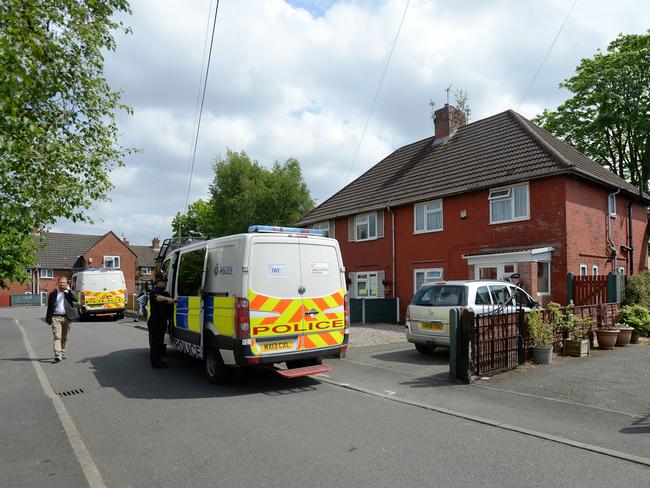
As these are the areas with the highest concentrations of Muslim populations, is it really just a numbers game — with the argument being that a certain — small but significant — number of Muslims will become radicalised?
Professor Abbas said social class, education, housing status, perceptions and politics were all factors.
Lower socio-economic areas, affected by crime, disadvantage and high unemployment are often areas with high migrant communities, as new arrivals often start out with poor English skills and no resources.
Professor Abbas said most of the Libyan diaspora in Manchester were “utterly appalled’’ by Monday’s attack.
“What has also emerged in this particular instance is the mass coming-together in response to the challenges caused by terrorist incidents such as this,’’ he said.
“Mancunians and other people across the UK are united in responding to this incident by not causing further division and fermenting hate.’’
The suburbs unfurl side-by-side on a southbound drive down the Princess Parkway from central Manchester.
First comes Moss Side with its big African and Caribbean population, where women in bright headscarves shop in Jamaican supermarkets. This area was once so rife with crime it led Manchester to be dubbed “Gunchester’’, as gangs named after their neighbourhoods (such as Gooch Close) brawled over drugs and territory.
Stephen Gray came from Moss Side.
Then you pass into Whalley Range, the original posh suburb of Manchester, which fell into disrepair decades ago, its mansions divided into grimy flats and its streets taken over as a red light district.
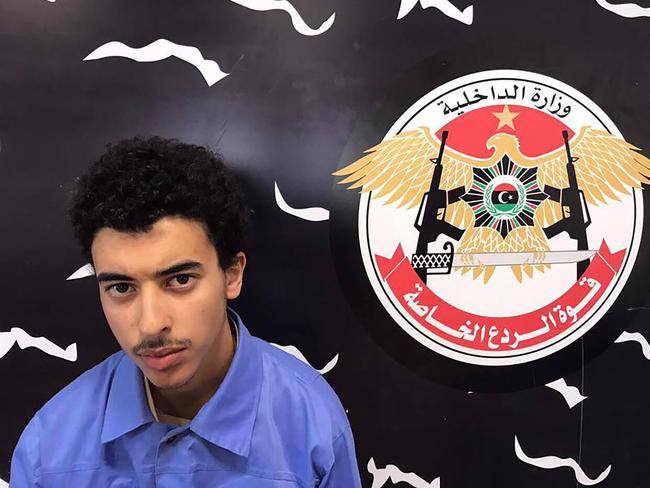
Things have improved in the past 10 years and on the oval of the William Hulme’s Grammar School, boys and girls race around in a smart uniform playing football on the oval. The girls are wearing headscarves. The vast majority are Pakistani, African and Indian in descent, British-born children of middle-class settler families.
At the state Whalley Range High School, mums in black headscarves do the school run, while a left-hand turn takes you into Fallowfield, a former council estate of endless, red-brick duplexes, onto Elsmore Rd.
It is here that Ramadan Abedi, a former dissident who fell foul of Muammar Gaddafi’s regime, and his university-educated wife, Samia Tabbal, lived for many years before returning to Libya in about 2011.
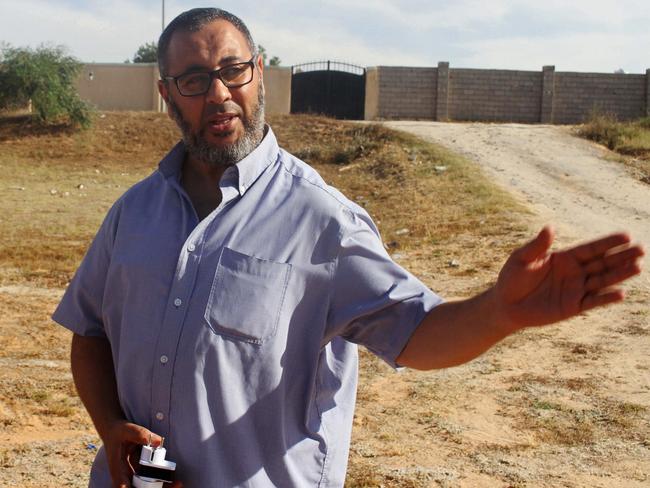
It is here that their three sons — Ismail, 23, Salman, 22, Hashem, 20, and daughter Jomana, 18, were raised.
Salman is dead, blown to pieces by the bomb he carried, while Hashem and his father were arrested in Tripoli on Wednesday.
Ismail was arrested in the next suburb over, Chorlton-cum-Hardy, outside the Morrison’s supermarket on Tuesday.
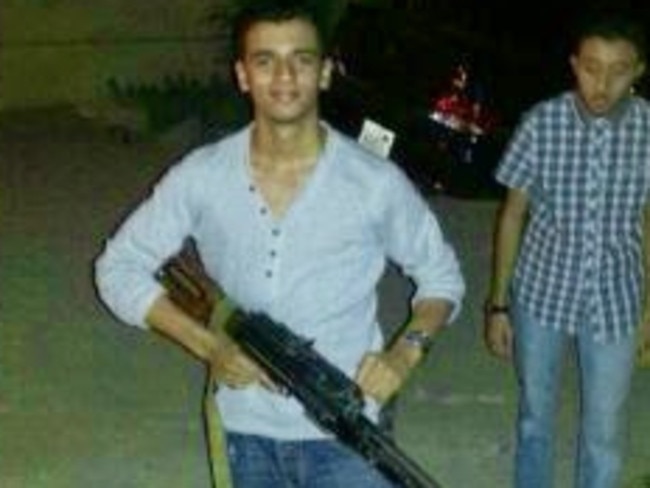
It was just down the road from the childhood home of Bee Gees Barry, Maurice and Robin Gibb, who lived here before moving to Australia.
Aslan Vasi is the Manchester-born son of Pakistani parents who have lived three doors down from the Abedi home since the ‘80s.
He said the Abedis were quiet and kept to themselves, causing no problems to their neighbours.
“They were just a lot of kids really, we just seen them grow up from kids.
“They’ve been here since they were messing around playing football in the street. We never expected anything like this.’’
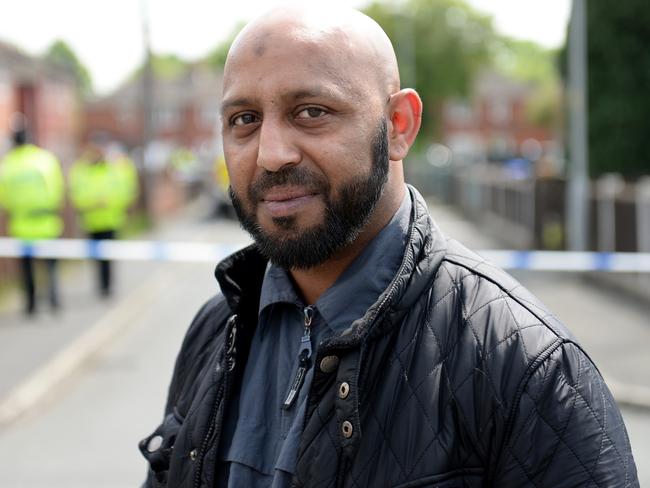
Mr Vasi, a Muslim, said the area was a mixed community with lots of Pakistani and Jamaican migrants, and everyone got along well.
“Manchester’s perfect. We never have any trouble,’’ he said.
“We did when we were kids but that’s just kids growing up, nothing. Everyone gets on with everyone.’’
Down the road, Muslim mother-of-one Khatoon Bibi said Manchester was welcoming to migrants, and everyone got along well in their mixed community.
She said “everyone was very scared’’ to learn there was a terrorist in their mix.
Mrs Bibi said the attack on the arena, and on the children of Manchester, was “very, very bad for everyone.’’
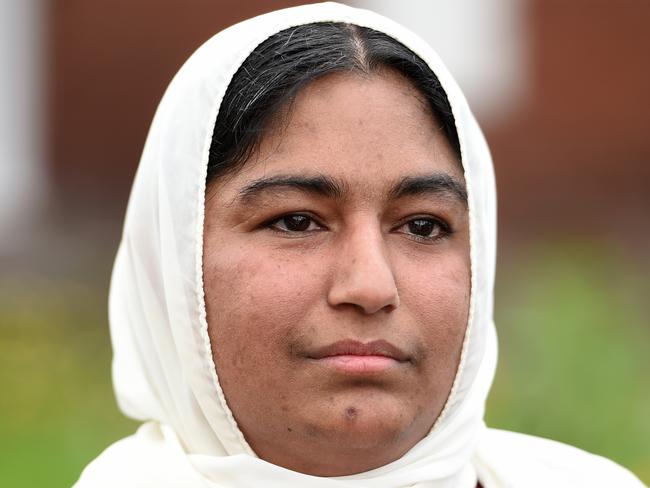
Born in Pakistan, resident in the UK for 20 years and living in Fallowfield for nine years, Mrs Bibi renounced violence and extremism.
“Nobody is allowed to kill anyone. If they are Muslim, Christian, anyone, every religion says everyone is equal so they’re not allowed to kill anyone.
“No religion ever said you can kill anyone, never.’’
Her toddler son, wearing a blue T-shirt with the British union jack on the front, pulls impatiently on her hand. He wants to go to the park but Mrs Bibi won’t take him because she is too frightened — not of being harassed, but of terrorists.
Originally published as Manchester remains in shock that the Ariana Grande suicide bomber was raised with them

